National Geographic

Food and your brain: ‘Ultra-processed’ foods high in salt, sugar and fat are cheap and accessible — but increase risks of anxiety and depression
Although many ultra-processed foods—soda, candy, energy bars, fruit-flavored yogurt, frozen pizza, and frozen meals—can satisfy cravings for sweet, fatty, salty ...

Foods can fight inflammation. Here’s what to eat to reduce your risk of cardiovascular disease, stroke and more
In the last few decades, researchers including [surgical oncologist Jennifer] Wargo have accumulated evidence to support some key ingredients in ...

Why Vitamins A and E may do more harm than good
There are many important supplements that benefit people with specific deficiencies or certain health conditions; but research shows, and experts ...
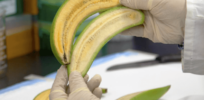
Orange ‘super banana’: Gates-funded Ugandan scientists develop vitamin A enhanced fruit that could help reduce blindness and save lives
Wilberforce Tushemereirwe holds up a genetically modified banana that took millions of dollars and 20 years to make. It contains ...

Four billion American chestnut trees have been killed by a deadly fungus. Can genetic engineering help scientists build a better tree?
Over the course of the 20th century, an estimated four billion [American chestnut trees], one-fourth of the hardwood trees growing ...
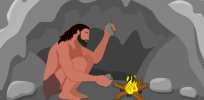
Neanderthals disappeared 40,000 years ago. What were they like?
What were Neanderthals really like—and why did they go extinct? These ancient hominids, who disappeared 40,000 years ago, were once ...

Will evolution phase out redheads from the human gene pool?
Redheads aren’t going extinct. Here’s why. Be it ginger, auburn or strawberry blonde, red hair is here to stay, say ...

These key grizzly bear genes keep them diabetes-free over long winter hibernations — offering clues to how we might better treat the disease in humans
If a human ate tens of thousands of calories a day, ballooned in size, then barely moved for months, the ...
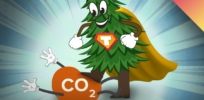
Saving forests: How genetic engineering can play key role
Emerald ash borer, sudden oak death, Dutch elm disease, oak wilt disease, walnut canker, hemlock woolly adelgid—in a globalizing world, ...
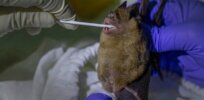
How did the Omicron COVID variant emerge? Here are 3 theories
Omicron’s arrival in November 2021 took scientists by surprise. Not because there was a new variant on the block, but ...

Flurona: How likely are you to get both COVID and the flu simultaneously?
Since the beginning of the COVID-19 pandemic, public health experts have worried about people getting infected with the influenza virus ...
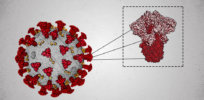
How Delta was birthed and what that says about the potential for deadlier future variants
Somewhere in India last October, a person—likely immunocompromised, perhaps taking drugs for rheumatoid arthritis or with an advanced case of ...
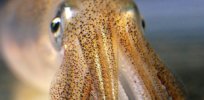
‘Nature’s gift to neuroscience’: Squids have a lot to tell us about the mystery of the human brain
Hundreds of times larger than the largest axon in humans, [squid axon] girth allows electrical impulses to travel rapidly into ...

Dramatic success of mRNA COVID vaccines opens the door to slew of new cancer treatments
Back when people first heard about Pfizer-BioNTech and Moderna’s COVID-19 vaccines, the mRNA technology behind them sounded like the stuff ...

Coronavirus quarantines have caused a huge spike in ‘cybersickness’
The pandemic has forced most of us online at incomparable rates. It’s where we’ve worked, taken classes, attended parties, and ...
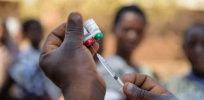
7 people contract malaria every second. We are finally on the verge of engineering a vaccine to stymie one of the world’s most relentless killers
In a study published in The Lancet on [May 5th] an international team has shared promising new data on a ...

COVID’s positive side-effect: fewer contagious illnesses. How can we make that last?
Many of us have likely noticed what the data is bearing out: Strict social distancing and masking protocols not only ...
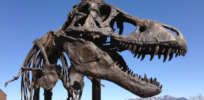
2.5 billion: That’s how many T. rexes may have roamed the Earth over their 3-million-year reign
On average, researchers estimate that some 20,000 T. rex lived at any one time and that about 127,000 generations of ...

COVID-19 Survival Guide: The virus will be with us forever. Here’s how we can adapt
Eventually—years or even decades in the future—COVID-19 could transition into a mild childhood illness, like the four endemic human coronaviruses ...

‘Dark angels of evolution, terrific and terrible’: How viruses have shaped evolution, for better or for worse
[Many] viruses bring adaptive benefits, not harms, to life on Earth, including ours. We couldn’t continue without them. We wouldn’t ...

Already blamed for ‘widespread insect declines,’ neonicotinoid insecticides may threaten mammals, too
On an overcast January day in Estelline, South Dakota, Jonathan Lundgren zips his quilted jacket over a fleece, pulls down ...

Empathy fatigue: The quickly rising global COVID death toll is too much for our brains to process
More tragedy doesn’t always elicit more empathy; it can counterintuitively bring about apathy. The magnitude of the death toll can ...

Who is the superspreader that infected Trump? There is a genetic tool available to find out if the White House wanted to use it
The [White House Rose Garden] gathering has been described as a superspreader event, as at least a dozen guests have reported ...

Coronavirus missiles: See for yourself if 6 feet of separation is enough protection from a cough
[Lydia] Bourouiba, a fluid dynamics scientist at MIT, has spent the last few years using high-speed cameras and light to ...

COVID-19 is deadlier than the flu
Texas is just one of the states that has experienced a surge in coronavirus cases over recent weeks after relaxing ...

Video: Iceland breeds heat-tolerant trees to restore native forests amid climate change
The landscape of Iceland has changed a lot in a thousand years. When the Vikings first arrived in the ninth ...
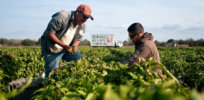
Farm workers fear coronavirus infection as they labor to keep US fed during COVID-19 pandemic
While millions of Americans shelter in place to prevent the spread of COVID-19, farmworkers on California’s cool central coast move ...

Historical amnesia: Measles outbreaks remind us why it’s perilous to forget life before vaccines
I suffer, like most people, from a notorious Catch-22: Vaccines save us from diseases, then cause us to forget the ...

